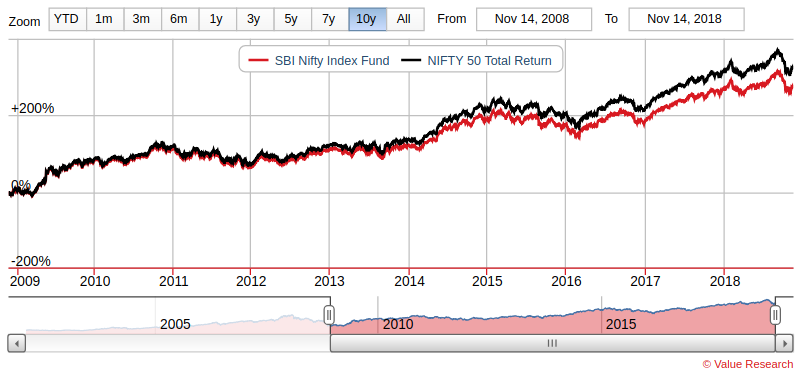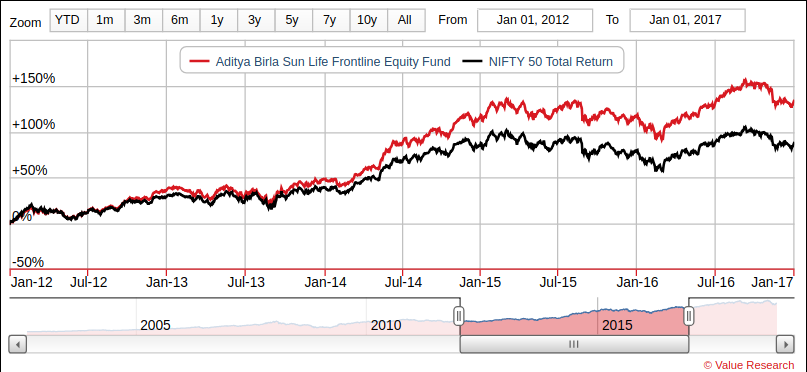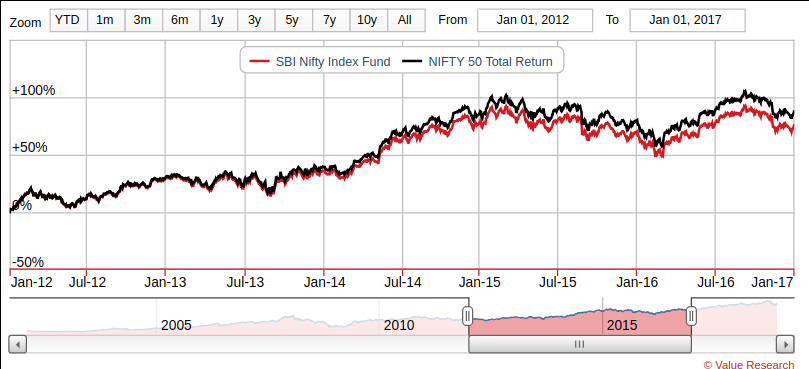Are Index Funds Better Than Active Funds?
• reynd
In the US, index investing is all the rage. John Bogle who started the first index fund, contends that an index fund beats almost all actively managed mutual funds (after accounting for fees) in the long run. But does it work in India? That was the experiment I set out to conduct in early 2012.
Disclaimer: Any mutual fund names discussed here are purely for the study of the experiment and not a recommendation. I may or may not have owned, or still own these funds at the time of writing this post.
What got me started?
When I first started investing in early 2011, I was reading a lot of books and articles on investing that were written in the US context. Many of the books recommended that index investing is the best way to invest. I was acutely aware of the fact that they are talking about a mature market like US. Index investing has not picked up in India and there were very few index funds available to invest. Even so, I set out to experiment, and figure once and for all if index funds are better than actively managed mutual funds in India.
Let's understand index funds
Before I explain my experiment, I want to quickly explain what are index funds, and why do people argue that they perform better. An index, is nothing but a basket of stocks (selected based on some criteria, for example tech stocks) and are weighted based on some criteria (for example market cap). As an example, Nifty 50 represents the weighted average of 50 Indian company stocks in 12 sectors.
An index fund is a passively managed mutual fund that tracks an index. There is no fund manager to actively select stocks that go into the mutual fund. An algorithm just selects all the stocks that constitutes an index that the fund is following. For example, SBI Nifty Index Fund basically follows the Nifty Index and contains all the stocks and in the same weights as in the index.
What makes index funds special is the cost, or expense ratio, which is usually much less compared to actively managed funds. Why is that? Because there is no fund manager or a team of researchers figuring out which stock to buy and sell. At the end of every day, the fund just needs to adjust the stocks based on the constituents and weights of the index it is following, which a computer algorithm can do.
The returns of index funds are also very similar to the returns of the index fund they are tracking. Actually the returns will be slightly less than the index because the expenses while low are not quite 0. Check out the SBI Nifty Index performance over 10 years below.

The experiment
In the US, only 5% of the actively managed funds beat their index based on 3 year annualized returns (net of fees). So it certainly seems to work fine in the US. Why not in India? I wanted to experiment. I found a couple of index funds with low expense ratios and started investing in 2012. I even invested in Kotak Nifty ETF which has an expense ratio of only 0.1%. At the time, most mutual funds charged around 1.75% to 2.25%.
I exited the experiment in early 2017 after seeing how all the actively managed funds I owned at the time are easily beating the index funds, net of expenses. As an example checkout these 2 graphs below. One is an index fund and another is an actively managed fund. While index fund managed only 75% total return in the 5 years, the actively managed fund returned more than 125%.

Summary
Index funds do not beat actively managed funds in India, at least not yet, in spite of their low management cost. May be in future when Indian market is more mature, and there is a larger retail investor participation, it may change. Until then, don't bother with index funds in India. By the way, India retail investor participation is 4.45% as of 2017 and in the US, the number is 48.8% as of 2013.


